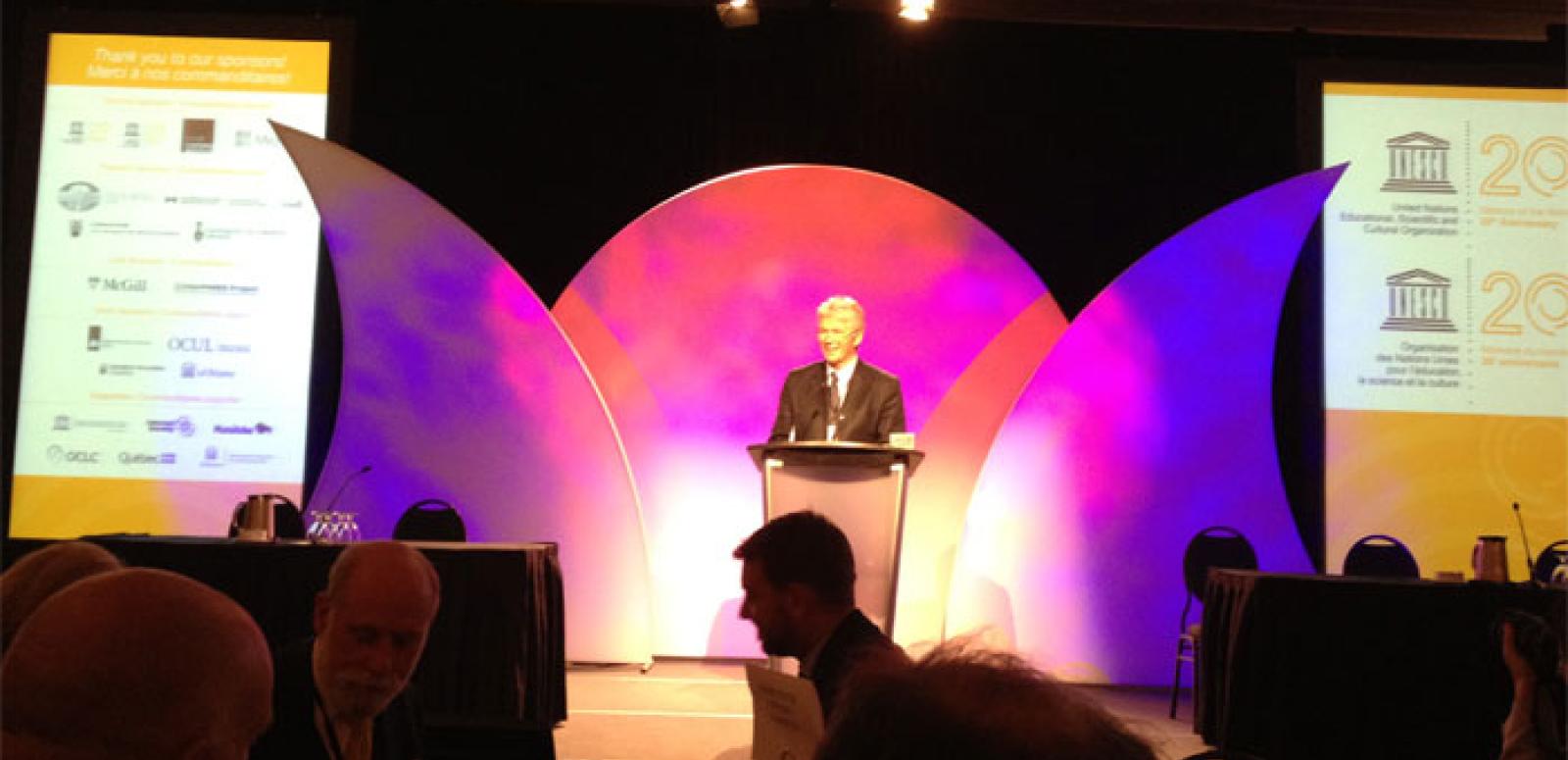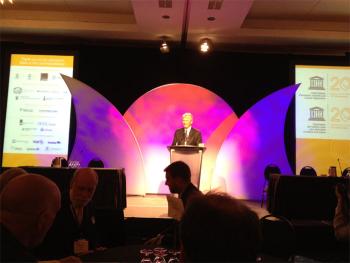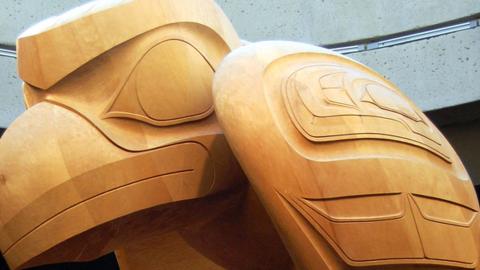

The father of the internet

It’s not every day that you get to meet the man who invented the internet. Vint Cerf, who with Bob Kahn is recognised as a ‘father of the internet’, was speaking today at the United Nations Education, Scientific and Cultural Organisation (UNESCO) conference The Memory of the World in the Digital Age: Digitisation and Preservation that is being held in Vancouver, Canada.
The conference aims to explore the main issues affecting the preservation of digital documentary heritage in order to develop strategies that will contribute to greater protection of digital assets and help to define an implementation methodology that, in particular, is appropriate for developing countries.
Dr Ken Thibodeau from the National Institute of Standards and Technology gave the opening address. He discussed the inherent tension between digital information that is dependant on context and standard preservation activities which attempt to keep it in place. The relationship between what is stored and what is presented can be complex and variable so digital preservation requires a multifaceted and diverse approach. Organisations need to determine what they are trying to preserve and what properties are needed in order to preserve its ‘memory’. Is the content being kept for remembrance or for utilisation – can you just preserve the content or do you also need to preserve the technology required to access it? Dr Thibodeau proposed that organisations examine the scope of their efforts – how much data and how many objects can they sustainably preserve? It is estimated that 1.8 trillion gigabytes (1.8 zettabytes) of data were created in 2011. How realistic is it to expect that we can preserve it all indefinitely?
Professor Seamus Ross from the iSchool Institute at the University of Toronto discussed the economics of digitisation further. He illustrated the growing gap between worldwide data creation and combined international storage capacity. He proposed that future preservation activity will be strongly linked to economic opportunities but expressed concerns about what this could mean for collections.
Dr Luciana Duranti from the University of British Columbia, the hosts of the Conference, talked about the challenge of establishing a document’s accuracy, reliability and authenticity and maintaining it over time in such a way that it can be proven. She also discussed the need to develop laws that serve and protect the people and those who govern them, including the right to memory and the right to be forgotten. Dr Duranti recommends the development of a model of law establishing control of our documentary heritage issued under the aegis of UNESCO as a complementary recommendation to an updated charter on the preservation of digital heritage. She asks – ‘if not now, then when?’.
There is so much else from the conference to report:
- Anne Thurston’s inspirational proposal that our societies have the greatest opportunity the world has ever known for sharing information and empowering citizens through access to that information;
- Francis Mwangi’s presentation on the Kenyan National Archive’s digitisation program that preserved 1.6 million documents in just over four months;
- Jeremy York from Hathi Trust who discussed an amazing project that has brought together a large number of research and academic institutions to share collections and resources;
- Hrjove Stancic from the University of Zagreb, Croatia, who presented research into the potential use of Cloud storage for archival purposes (which inspired vigorous debate); and
- Kevin Bradley from the National Library of Australia who advocated the need to assist remote communities to manage digital collections in places where integrated data storage cannot be supported by existing infrastructure.
But I don’t need to report on everything because, thanks in part to Vint Cerf’s internet, you will be able to download audio recordings from the UNESCO website in the weeks following the conference. Digital technology – can’t live with it, can’t live without it.
The National Film and Sound Archive of Australia acknowledges Australia’s Aboriginal and Torres Strait Islander peoples as the Traditional Custodians of the land on which we work and live and gives respect to their Elders both past and present.


